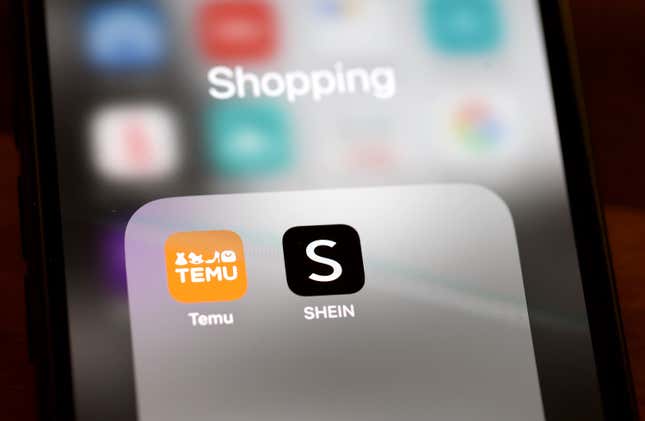
In This Story
Prices are already rising on Temu and Shein, as the U.S. gears up to end the “de minimis” exemption that let online shoppers dodge tariffs on low-cost goods.
The loophole for packages worth less than $800 is set to expire on May 2, as a result of President Donald Trump’s April 2 executive order to “combat China’s role in America’s synthetic opioid crisis.”
Some experts say the order will do little to curb the fentanyl crisis, and the Department of Homeland Security says most opioids entering the U.S. do so via its southwestern border. Ending the de minimis exemption will, however, “disproportionately hurt lower-income and minority consumers,” a study by Yale and UCLA economists found in February.
Temu and Shein — known for their low prices, TikTok virality, and reports of forced labor and copyright violations — had already warned shoppers that prices would rise. In a recent note on its website, Shein said it would start upping prices on April 25 “due to recent changes in global trade rules and tariffs,” and Temu put out a similar statement.
On Reddit, Temu and Shein shoppers have mourned the services in recent days ahead of the price hikes. “They were so affordable and did have some gems among all the crap lol,” one user said.
“It’s really sad this era is coming to an end,” wrote another.
Both online stores have taken steps to expand their U.S. operations to try to mitigate the pain of tariffs.
Still, “the vast majority of Temu’s inventory is sourced from China, so these new tariffs are deeply disruptive to their pricing model,” David Warrick, an executive at supply-chain risk management firm Overhaul, told Quartz earlier this month. “It’s one thing to absorb minor cost fluctuations, but this is a fundamental margin hit that’s hard to work around without passing costs to consumers.”
Meanwhile, Trump and China can’t even publicly agree on whether trade talks are actually happening. Earlier in April, the Trump administration slapped 145% tariffs on goods from China, and in turn, China retaliated with 125% tariffs on imported U.S. goods.
Amid the chaos, U.S. shoppers have recently flocked to other Chinese shopping apps, including DHgate and Taobao, after videos promoting their wares went viral.